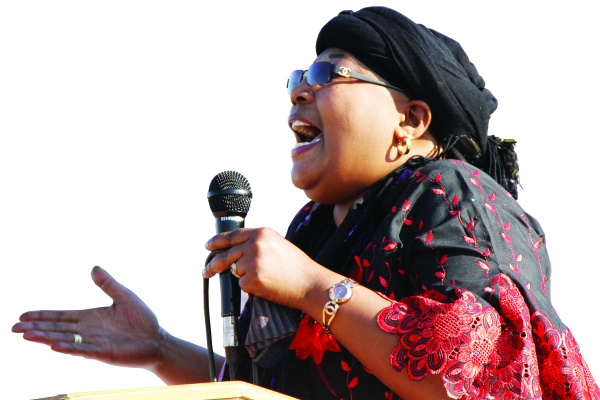
BREAST cancer survivor, Thokozani Khupe has urged women and men to undergo early cancer testing to combat one of the leading global causes of deaths among women.
BY NQOBANI NDLOVU/PHYLLIS MBANJE
Khupe, the founder of the Thokozani Khupe Cancer Foundation (TKCF) and leader of the opposition MDC-T party, made the call yesterday as Zimbabwe marked the start of the breast cancer awareness month, an annual campaign across the world.
Breast cancer remains one of the most vicious diseases with statistics showing that an estimated one in eight women will have breast cancer in their lifetime, while it affects one in 100 men.
Every October, countries and stakeholders across the world call for increased commitment to funding treatment of the disease, whose effects are only second to cervical cancer.
The Breast Cancer Awareness Month was set up to help increase attention and support for awareness, early detection and treatment as well as palliative care of this disease.
However, many women still do not have access to correct information on the disease as well as screening and treatment.
Early diagnosis, according to the World Health Organisation, is key to successfully treat and manage the disease.
- Chamisa under fire over US$120K donation
- Mavhunga puts DeMbare into Chibuku quarterfinals
- Pension funds bet on Cabora Bassa oilfields
- Councils defy govt fire tender directive
Keep Reading
Khupe said TCKF — formed in 2012 — was rolling out cancer awareness programmes across the country, particularly in rural areas, urging early testing.
“I am a living testimony. I was diagnosed with breast cancer in May 2011. I went through treatment and here I am today totally cured. This is my eighth year now. The sad reality is that in Africa, women only discover they have breast cancer when their cancer is in stages 3 or 4 due to lack of awareness and barriers to health services,” Khupe said.
“As TCKF, we would, therefore, like to call upon all women and men … (to)go for cancer screening because early detection of cancer saves lives. We would also like to implore government to build cancer centres in all the 1 958 wards in Zimbabwe, so that cancer treatment is accessible.” Khupe said TCKF will be carrying out breast cancer awareness programmes throughout the year in rural areas.
Lovemore Makurirofa from the Cancer Association of Zimbabwe (Caz) said: “Our emphasis should be on early diagnosis and dissemination of correct information to communities, particularly in rural areas. People should occasionally check their breasts for any abnormalities.”
To raise awareness, Caz every year embarks on screening campaigns which include physical examination of the breast.
“For this year, anyone can come and be screened at a nominal fee of just $5. When one is diagnosed early, the treatment is less expensive and they have a better shot at being cured” he said.
Currently, there is no sufficient knowledge on the causes of breast cancer, therefore, early detection remains the cornerstone of breast cancer control. When breast cancer is detected early and if adequate diagnosis and treatment are available, there is a good chance that it can be cured. If detected late, however, curative treatment is often no longer an option. In such cases, palliative care to relieve the suffering of patients and their families is needed. Breast cancer is by far the most common cancer in women worldwide, both in the developed and developing countries. In low and middle-income economies the incidence has been rising up steadily in the last years due to increased life expectancy, urbanisation and adoption of western lifestyles.
The majority of deaths (269 000) occur in low and middle-income countries, where most women with breast cancer are diagnosed in the late stages due mainly to lack of awareness on early detection and barriers to health services.
Men are also being urged to do self-examination of their breasts.
“Although the statistics for men are lower (1 in 100) they are still urged to examine their breasts. Breast cancer for men is more virulent,” Makurirofa said.
First Lady Auxillia Mnangagwa and the Health ministry have also been championing free cervical and breast cancer screening programmes across the country.











